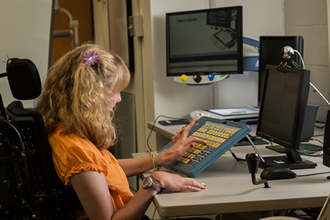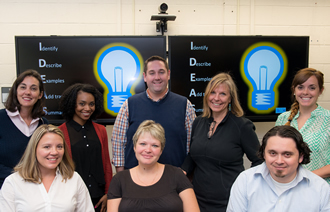Major External Funds Received/Archives
Archives: Major External Funds Received
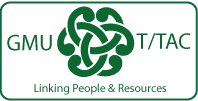
Region 4 Training and Technical Assistance Center (T/TAC)
The T/TAC delivers high-quality assistance on request to professionals involved in the education of students, from birth to age 21, with disabilities in the 20 school divisions in Superintendents Region IV in northern Virginia. The T/TAC assists school personnel who serve students identified as disabilities that are considered to be mild, moderate, severe, or profound levels, or have multiple handicaps, deaf-blindness, or autism.
This grant is operated in partnership with James Madison University for a total of two regions served by both universities in the state of Virginia. T/TAC and JMU also work in collaboration with Old Dominion University, Virginia Tech, William and Mary, Radford University, Virginia Commonwealth University, and the Virginia State Department of Education to develop ongoing improvement and evaluation of assistive technology efforts across the entire state. The services available within T/TAC include; consultations, in-services and workshops, an assistive technology resource library, information services, newsletter, and peer assistance. The funding for this project is as follows:
PI(s): Behrmann
Amount: $1,034,635
Source: James Madison University/Virginia Department of Education
Dates: 3 Years (5 year funding)
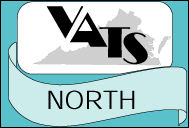
Virginia Assistive Technology System North (VATS)
VATS North is a joint project between KIHd and Project W.O.R.D. funded by the Virginia Department of Rehabilitation. VATS is responsible for providing support for collaboratively developed public awareness issues surrounding the use of assistive technology. VATS provides technical assistance, which includes systems operations training, access to the network of assistive technology experts to assist in responding to inquiries, computer hardware and software to access the statewide system.
The Virginia Assistive Technology System-North (VATS North) is administered through funds provided by the Virginia Assistive Technology System in order to improve access to assistive technology (AT) in Virginia. Assistive technology is anything manufactured or contrived that increases, maintains, or improves the lives of people with disabilities. The services of VATS North are available to all people with a disability, their family, friends, employers, co-workers, educators, service providers, or anyone wanting to know more about AT. The funding for this project is as follows:
PI(s): Behrmann
Amount: $195,432
Source: Virginia Department of Rehabilitation Services
Dates: 3 Years (5 year funding)
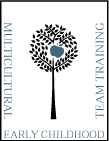
Multicultural Early Childhood Team Training (MECTT)
This is a joint project between the KIHd and the Parent Educational Advocacy Training Center (PEATC). The Multicultural Early Childhood Team Training (MECTT) is a federally funded project that prepares parent and professional teams to improve services to diverse families of young children with special needs--infusing cultural competence in early childhood programs. The project is currently in outreach.
The project is also producing and disseminating training materials. The project's philosophy is that parents and professionals working together can effectively promote change, and participants with diverse educational backgrounds and experiences enrich the learning process. By engaging in on- going research, training, and information dissemination, the quality and quantity of training to these individuals can be improved. The funding for this project is as follows:
PI(s): Thorp, Takemoto
Amount: $228,877
Source: U.S. Department of Education/PEATC
Dates: 3 Years (3 year funding)
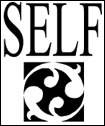
Special Education Licensure Fulfillment (SELF)
The SELF program is a series of graduate courses offered by George Mason University's special education program to fulfill minimum requirements for Virginia licensure in learning disabilities and emotional disturbance. The program is located within the School of Education at GMU. The funding for this project is as follows:
PI(s): Razeghi, Behrmann
Amount: $636,280
Source: Revenue
Dates: 3 Years of Annual Funding

Unified Transformative Early Education Model (UTEEM)
UTEEM is a Master's degree program offered at George Mason University. The program had three endorsements in Early Childhood Education, Early Childhood Special Education, and English as a Second Language. UTEEM prepared early educators to work with culturally, linguistically, and ability diverse young children and their families in a two year full-time program. The funding for this project was as follows:
PI(s): Thorp, Sanchez
Amount: $658,800
Source: Revenue
Dates: 3 Years of Annual Funding
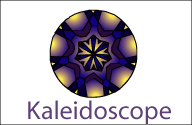
Kaleidoscope
Kaleidoscope has as its mission, to provide new ways of thinking, learning, and responding for personnel working with diverse young children and their families in inclusive community settings. According to the 1990 census, minorities make up about one-fourth the population of the United States, and this increase in cultural, linguistic diversity is expected to continue. On the other hand, young children with disabilities are served more frequently in inclusive settings. Therefore, early childhood personnel need specific training that prepares them to competently and comfortably deliver services to a cultural, linguistic, and abilities diverse population.
The purpose of Kaleidoscope training materials is to provide professional and paraprofessional early childhood personnel with the attitudes, knowledge, and appropriate practices necessary to implement inclusive services for diverse young children and their families. The funding for this project is as follows:
PI(s): Thorp, Sanchez
Amount: $437,031
Source: Revenue
Dates: 3 Year (3 year funding)

Assistive Technology Initiative (ATI)
The mission of the ATI is to provide individuals with disabilities access to technology that is available to all GMU employees and students, so that they have the tools needed to be as independent and successful as possible in GMU's academic environment. The ATI is a joint project supported by the University Equity Office, The Helen A. Kellar Institute for Human disAbilities, and the Disability Resource Center.
PI(s): Neuber, Behrmann
Amount: $20,000
Source: Revenue
Dates: Annual
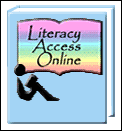
Literacy Access Online (LAO)
The purpose of this project is to develop a universally accessible literacy web based learning tool for students ages 9 through 14 with disabilities. LAO is a federally funded grant from the Office of Special Education programs "Stepping Stones of Technology Innovation for Students with Disabilities Program/Phase 1 - Development". This is a joint project with The Helen A. Kellar Institute for Human disAbilities in cooperation with the Parent Education and Advocacy Training Center (PEATC).
PI(s): Behrmann
Amount: $400,000
Source: USDOE
Dates: 2 Year

DoD Immersion
The nature of the Immersion program requires a new and distinct model of teaching involving the investigation and exploration of content, theory and process related to the project at hand. Grounding in basic ISD procedures, as well as an introduction to the field and literature all take place within the context of solving the instructional problem and furthering development on a particular project. Teaching in this just-in-time fashion can involve various methods of instruction including lecture, discussion, collaborative group activities, guest experts as well as student-initiated presentations and contributions. This instructional approach is supported by an electronic infrastructure that provides Web-based resources and computer conferencing experiences often created and led by students as well as instructors in order to complement and reinforce teaching or project management activities. Products from this program will provide DoD with prototype computer-based instructional materials.
PI(s): Behrmann, Bannan
Amount: $80,000
Source: C2, Inc.
Dates: 1 Year

UTEEM Recruitment
The purpose of this project was to recruit students for the UTEEM Master's degree program.
PI(s): Thorp
Amount: $400,000
Source: USDOE
Dates: 2 Year (3 year funding)

IT Certificate Program
Certificate programs are offered to those individuals who do not choose to pursue a complete graduate program. Within the Instructional Design and Development (ID&D) track , a Multimedia Development Certificate is offered to those individuals who would like to learn the technology associated with multimedia development. Within the Integration of Technology in Schools (ITS) track, a certificate program is offered to those K-12 teachers who may not wish or are unable to participate in a cohort program. The Certificate Program will provide individuals with training on current and timely technology products as well as an introduction to design and development of educational and training products.
PI(s): Behrmann, Norton, Sprague, Bannan
Amount: $540,000
Source: Revenue
Dates: Annual Funding
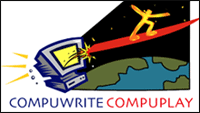
CAMP
CompuWrite Camps are for students in the 4th-8th grades who are experiencing difficulties with the writing process. This camp uses technology and innovative computer software programs to enhance the writing process and improve written language skills in fun and exciting activities.
Compuplay Camp is for students from ages 2 to 21 with physical, communication, or severe disabilities. This camp focuses on the student's individual abilities. Students are taught ways to use adaptive/assistive technology to enhance communication, motor and learning skills when interacting with their home, school, and/or community environments. It is part of the National Lekotek Center which is an organization dealing with assistive technology and its application to individuals with disabilities through "play " activities. The Compuplay program uses adapted computer equipment and software to provide inclusive technology training for children with disabilities. Instructional content is developed on each student's individual needs.
PI(s): Behrmann
Amount: $35,000
Source: Revenue
Dates: Annual Funding

VETA (Virginia Education Technology Alliance )
The Virginia Educational Technology Alliance (VETA) is a coalition of Virginia teacher education programs that includes Virginia Tech, Old Dominion University, George Mason University, the College of William and Mary, Virginia Commonwealth University, James Madison University, and the University of Virginia. The goal of the Alliance is to share resources, expertise and research to collaboratively support the efforts of Virginia's educational institutions in fully integrating computers and other learning technologies in the teaching and learning process. A particular goal of the alliance is to encourage and support collaborative preservice and inservice technology preparation efforts.
PI(s): Behrmann
Amount: $442,000
Source: SCHEV
Dates: 2 Year (2 year funding)
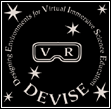
Project Devise
The goal of the DEVISE project is to design, develop, and evaluate an immersive multi-sensory virtual learning environment that addresses the foundations of physics instruction for students with learning disabilities.
PI(s): Behrmann, Dede
Amount: $200,000
Source: USDOE
Dates: 1 Year (2 year funding)
Early Childhood Pedagogy
What will it take to provide better early education and care for our children between the ages of two and five? Early Childhood Pedagogy explores this question using key discoveries in how young children learn and the impact of early learning.
PI(s): Burns
Amount: $15,629
Source: National Academy of Science
Dates: 3 mos.

PREPTECH (A Partnership to Renew Educational Preparation in Technology)
PREPTECH is a project through the Virginia Educational Technology Alliance (VETA), a consortium designed to share technology resources, research and expertise among teacher educators in Virginia. The goal of the project is to increase and improve the integration of technology into pre-service teacher education programs. Partnering institutions involved in the PREPTECH project include: James Madison University, Old Dominion University, University of Virginia, Virginia Commonwealth University, Virginia Tech, College of William and Mary, The Virginia Association of Colleges of Teacher Education, The Virginia Department of Education, The Virginia Society of Technology in Education and The Virginia Staff Development Improvement Network.
Methods groups are designed to enable faculty sharing across partner institutions. They are formed from faculty in all partnering universities in the content areas of Special Education, Mathematics, Science Social Studies, Reading and Language Arts and English. These methods groups meet in a variety of ways to share ideas and new technology to integrate into course content.
PI(s): Behrmann
Amount: $27,000
Source: William & Mary, USDOE
Dates: 1 year


